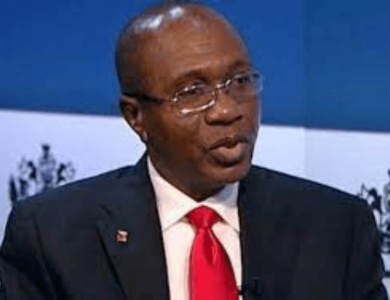Commerce Secretary Gina Raimondo is walking a tightrope in China

[ad_1]
What to see while Raimondo is visiting China
Commerce Secretary Gina Raimondo, one of the Biden administration’s biggest hawks on Beijing, began her visit to China on Monday. With an invitation to save A “stable economic relationship” between the two economic powers that “share a trade worth more than $700 billion.”
With relations between the two countries at a critical juncture, Ms. Raimondo is now the fourth senior US official to travel to China in less than three months. Her visit, which will include meetings with business leaders and government officials, including her Chinese counterpart Wang Wentao, will be closely watched as she searches for common ground on trade. Even as it seeks to reduce it.
This is what Ms. Raimondo expects to focus on during her trip. According to Anna Swanson of The Times, Alan Rapport and Keith Bradcher.
Ms. Raimondo is likely to defend the escalating tech war. Which you will argue is intended to protect US national security. (Mrs Raimondo He said (On Monday it will not concede or negotiate on this point.) This month the White House announced plans to block private equity and venture capital firms from making investments in China in quantum computing and advanced semiconductors.
Last year, the administration severely restricted shipments of advanced semiconductors and chip-making machines to China. A new bipartisan law aimed at boosting the semiconductor industry in the United States aims to bar companies that accept federal money from making high-tech investments in that country.
Western companies have to contend with Chinese national security laws, too. In March, Chinese authorities arrested five Chinese nationals working in Beijing for the Mintz Group, a US consulting firm. In April, authorities questioned employees at the Shanghai office of Bain & Company, a US management consultancy.
“This concern about physical security hinders interactions on a business and academic level as well,” Susan Shirk, a research professor at the UC San Diego 21st Century China Center, told the Times.
Ms. Raimondo will seek to keep commercial channels open. China remains the third largest market for US exports, buying more than $150 billion worth of products from US farms and companies. US export controls affect only 1% of bilateral trade between the two countries.
One of the main goals of the trip is to enhance trade relations as they align with US interests, including efforts to boost tourism and “people-to-people” exchanges. A return to 2019 levels of Chinese visitors in the US would generate $30 billion for the US economy.
China’s economic slowdown is a major concern for global investors. The country’s struggle to recover from the pandemic, as well The growing housing crisisraised questions about the fate of its massive economy.
Hours before Raimondo’s meeting today with Mr. Wang, the Chinese authorities Reduced stamp duty on equity trading in an effort to boost trading volumes – but also provided a measure to slow the pace of initial public offerings. Chinese stocks initially rose when the market opened on Monday, but gave back most of those gains during the day.
Here’s what happens
Two storms threaten to hit the east coast. Franklin It became a major hurricane on Monday, which could cause life-threatening undercurrents and swells in the eastern United States. Idalia It is expected to become a Category 2 hurricane by the time it hits Florida tomorrow, which could lead to evacuations along its path.
3M is reportedly close to a $5.5 billion settlement over defective earplugs. The company is negotiating an agreement that will dissolve More than 300,000 claims It was reported by military veterans that its earplugs failed to stop hearing loss, according to Bloomberg. The settlement would permanently solve one of 3M’s costly legal problems, even though it still faces thousands of lawsuits over the so-called chemicals.
The fate of the Wagner Group is in limbo. Moscow confirmed that Yevgeny Prigozhin, the leader of the Russian paramilitary group that led the aborted rebellion last June, He died in a plane crash last week. This makes the future of the once feared military force — which operates in no fewer than 10 countries and has valuable commercial real estate in Africa — unclear, though it may well be absorbed into Russia’s armed forces.
Allies back down from RFEF chief amid misconduct scandal. after fifa Stop Luis Rubiales Amid an investigation into whether he had forcibly kissed a Spanish player after his country won the World Cup, Sponsoring companies I backed it off too. This leaves Rubiales increasingly isolated, even as he refuses to resign with his claim that the kiss was consensual.
Quietly broad majority for corporate diversity
Gathering in Washington over the weekend to celebrate its 60th anniversary March to Washington He stressed the gap between what Martin Luther King called for in this event and reality.
But a new Harris Poll for the Black Economic Alliance suggests that at least there is widespread support among Americans for increasing racial diversity in the business world.
Most Americans believe diversity is desirable and profitable. According to the survey of more than 2,000 adults, spanning racial, generational, and political lines. About 78% of respondents said they believe companies should reflect the racial makeup of the United States, and that they support companies that take “active steps” to ensure diversity.
Majorities also believe that diversity improves companies’ ability to innovate, understand and reach customers, recruit and retain talent, manage risk, and make money.
But many Americans are also unaware of the realities of racism. Only one in 10 correctly guessed that less than 2% of the country’s 500 largest companies — eight to be exact — have a black CEO (on average, respondents said the number was 19%).
When told the actual number, 71% of the participants said it was not enough.
However, many efforts to improve diversity in the workplace are facing headwinds. About two-thirds of Republicans surveyed said they support corporate consolidation goals; The foundation said this response indicates that “partisan efforts to dismantle corporate diversity programs are in fact off track in the country.”
But conservative policymakers and the courts have opposed diversity programs in the business world. Republican presidential contenders such as anti-wake-up activist Vivek Ramaswamy and Florida Gov. Ron DeSantis, who DEI initiatives banned At public colleges in his state, they are campaigning to dismantle programs aimed at greater equality.
This suggests that companies face a difficult path in improving diversity, even if most Americans support such moves.
Employment phrase du jour
In earnings calls over the past year, an increasingly new phrase has emerged from the lips of company chiefs: “reset”.
This means that employers are reconfiguring their teams to adapt to a possible economic downturn or customer withdrawal. As a result, some workers are told their roles have been cancelled. They are not necessarily fired, but their jobs are forgotten.
The Wall Street Journal Phenomenon calls “Quiet Cut.” This is the latest omen, ahead of Friday’s jobs report, of labor market weakness. It is also a sign of how far we have come from the days of “quiet resignation” just a few years ago, when plentiful job opportunities gave workers the upper hand in negotiating with employers. The magazine explains:
Adidas, Adobe, IBM and Salesforce, among others, have rehired employees as part of the company’s restructuring. References to a reset, or similar terms, during the company’s earnings calls more than tripled between last August and this month, according to data from AlphaSense, a financial research platform.
“Resetting is definitely a big part of the dynamic right now,” said Andy Challenger, senior vice president at Challenger Gray & Christmas, an offshore company.
“What’s unsafe isn’t always clear. Without a specific heat standard, it makes it more difficult for regulators to decide, ‘Well, is your employer breaking this law or not?'”
— Juanita Constablea senior advocate for the National Resources Defense Council, on how, after a summer of record temperatures, workers in many states lack protection from the debilitating effects of extreme heat on the job.
next week
Jobs, inflation and a bit of earnings are showing this week, as weary investors look for signs of hope amid the month-long market swoon. Here’s what to watch.
Tuesday: The Conference Board will release a key reading on Consumer Confidence. Also, Best Buy and HP report results.
Wednesday: Germany, which last week announced that its economy stabilized in the fourth quarter, is due to publish inflation data for August. CrowdStrike and Salesforce provide earnings.
Thursday: Investors will look forward to the Eurozone CPI for August and fresh Chinese manufacturing data. Elsewhere, Dollar General, Dell and UPS announce results.
Friday: It’s Jobs Day. Economists expect employers to add approximately 175,000 jobs in August, which is a decrease from July. We expect to focus on wage data as well.
fast reading
deals
Policy
-
Holes in the $10,000 ceiling Discounts on state and local taxes It adds up to $20 billion in lost revenue for the federal government, according to a new estimate. (Wall Street Journal)
-
Terry JoeThe founder of electronics giant Foxconn has announced that he will run for president of Taiwan. (bloomberg)
-
Labor groups and their allies plan to put Pressure on Hyundai and the White House About the automaker’s non-union transition to electric vehicle production. (The New York Times)
better than the rest
We like your feedback! Please email ideas and suggestions to Dealbook@nytimes.com.
[ad_2]
Source link




